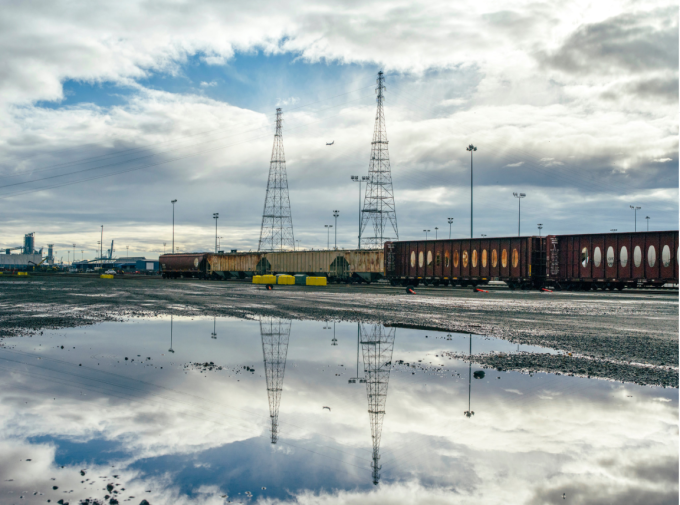
Click to enlarge — David Kasnic
Environmental passions, which run hot in the Northwest over everything from salmon to recycling, generally get couched in the negative: Don’t fish too much, don’t put those chemicals up the smokestack, don’t build in that sensitive area.
But here in southern Washington, some environmental groups are quietly pushing a builder to move even faster with a $1.3 billion real estate project along the Columbia River that includes office buildings, shops and towers with 3,300 apartments.
The reason is oil.
Two miles west of the 32-acre project, called the Waterfront, one of the biggest proposed oil terminals in the country is going through an environmental review, with plans to transfer North Dakota crude from rail cars to barges. Up to four trains, carrying 360,000 barrels of oil, would pass every day through this city’s downtown, only a few hundred feet from the Waterfront’s towers, westbound from the Bakken shale oil fields…
The result is a sort of race to the crossing: If the Waterfront can get its bricks and mortar in the ground before the terminal is approved — possibly late next year, with litigation likely to follow — more people would be living and working near the oil-train line. Compounding what opponents, led by the city, say are the dangers of spills or derailments, would make the terminal’s path to approval steeper…
The Waterfront project, Brett VandenHeuvel said, makes the threats from the oil trains “more tangible and more real.” At least 10 large crude oil spills have been reported since early 2013 because of train accidents in the United States and Canada, including one in Quebec that caused a fire and explosion and killed 47 people…
The Vancouver city manager, Eric J. Holmes, said every advance at the Waterfront potentially changed the final arguments on the terminal, which he thinks could be years away, perhaps ending up before the State Supreme Court.
If the city itself changes in the meantime, he said, those final arguments about oil and rail and safety will change, too. “If it adds to the argument about our community’s safety, we’ll certainly invoke it,” he said.
Go for it, folks. The history of American courts ruling on behalf of NIMBYs is pretty strong. That the sum of struggle benefits the whole region – excepting folks profiting from the fossil fuel economy – ain’t a difficult motivator.